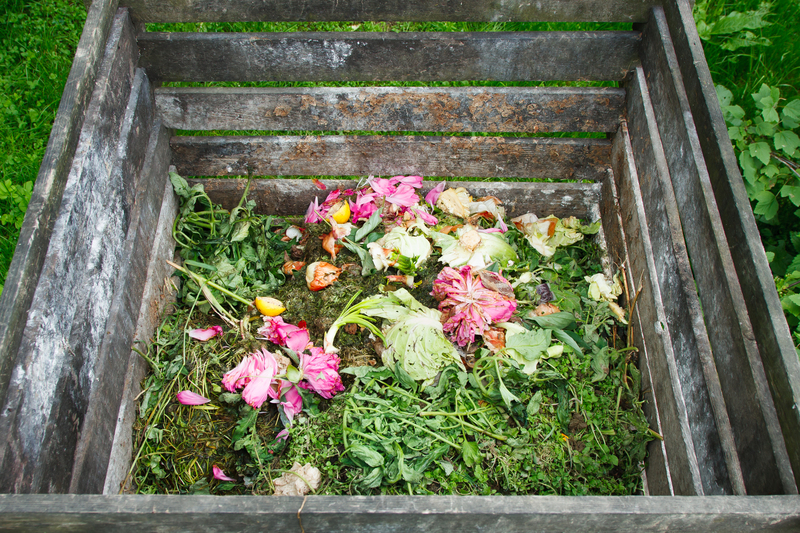Finding Local Recycling Centers for Pots and Pans: A Complete Guide
Have you ever looked at your worn-out cookware and wondered: how do I responsibly dispose of old pots and pans? Whether your favorite frying pan has lost its nonstick coating or your trusty saucepan has developed a stubborn scorch mark, it's important to recycle cookware safely rather than throw it in the trash. But where do you start? This comprehensive guide will walk you through everything you need to know about finding local recycling centers for pots and pans, why recycling is so crucial, and how to prepare your cookware for recycling.

Why Recycle Old Pots and Pans?
Every year, millions of pots, pans, and other types of cookware end up in landfills. Recycling pots and pans ensures that valuable metals are not wasted and can be repurposed to create new products, reducing our reliance on mining for raw materials.
- Environmental Protection: Recycling prevents pots and pans from sitting in landfills for decades or centuries.
- Resource Conservation: Metal recycling saves energy and resources compared to extracting new materials.
- Community Impact: By recycling, you contribute to your community's sustainability initiatives.
Did you know? Aluminum and stainless steel are among the most common materials in cookware--and they're both highly recyclable!
Types of Pots and Pans That Can Be Recycled
Not all cookware is created equal. Some are made solely from recyclable metals, while others may have plastic handles, glass lids, or nonstick coatings that can complicate recycling. Here is a breakdown of common cookware materials and their recyclability:
- Aluminum pans: Easy to recycle; just remove any non-metal parts first.
- Stainless steel: Highly sought after by scrap yards and recycling centers.
- Copper cookware: Can be recycled as scrap metal, but may require removal of handles or inside linings.
- Cast iron: Durable and 100% recyclable--just ensure it's clean!
- Pots/pans with nonstick coatings: Some recycling centers accept them, while others do not. Always check first.
What Can't Usually Be Recycled?
- Nonstick pans with Teflon coatings are sometimes rejected by facilities due to chemical concerns.
- Cookware with significant amounts of plastic, wood, or silicone may need special processing.
- Glass lids should be recycled with glass if clean, not with metal pots and pans.
How to Find Local Recycling Centers for Pots and Pans
Ready to recycle your pots and pans locally? Here are practical steps to ensure your cookware doesn't end up in a landfill:
1. Use Online Recycling Locators
- Earth911 Recycling Locator: Enter "pots and pans" or "cookware" plus your zip code on the Earth911 website. This well-known database provides information on facilities that accept metal cookware.
- RecyclingCenters.org: This site offers detailed listings of local recycling centers in the United States. Simply type in your city, state, or zip code and search for "metal" or "scrap metal".
- Call2Recycle: Although mainly for batteries and electronics, their locator sometimes includes info about local scrap metal drop-offs.
2. Contact Local Municipal Waste Management
- Many city recycling programs accept household metals, including pots and pans, as part of their curbside or drop-off services.
- Call your town or county's solid waste department, or check their website for guidelines about metal recycling.
- If curbside pickup is not available, staff can often refer you to the nearest approved recycling centers accepting pots and pans.
3. Visit Scrap Metal Yards
- Local scrap metal recyclers usually welcome aluminum, iron, copper, and steel appliances--including most cookware.
- Search Google or your local business directory for "scrap metal yard near me".
- Call ahead to check hours and confirm they accept your type of pots and pans.
4. Check with Home Improvement Stores
- Some national chains like Home Depot or Lowe's offer seasonal recycling events where you can drop off old household items, including broken cookware.
- Look for information about recycling events on their websites or at the service desk.
5. Ask About Appliance or Bulk Waste Collection Days
- Many municipalities host "bulk waste" or "appliance recycling" alternatives once or twice a year.
- Contact your local city hall or waste collection provider to learn when the next event takes place.
Preparing Your Pots and Pans for Recycling
Before heading to your chosen recycling center, it's important to properly prepare your cookware:
- Remove all non-metal parts: Detach plastic handles, rubber grips, or non-metal knobs if possible. These materials can contaminate the metal recycling process.
- Rinse and clean pans: Remove food residue and oils to keep recycling streams clean.
- Group items by metal type: Facilities may process aluminum and steel separately. If unsure, staff can help sort them for you.
- Label nonstick cookware: Let the staff know if pans have a nonstick or Teflon coating, as these may require special handling.
Sustainable Alternatives to Recycling Pots and Pans
What if your old cookware isn't recyclable through your city program? Consider these creative ways to give your pots and pans new life before turning to recycling:
1. Repurpose Around the Home
- Planters: Drill a drainage hole and transform old pots into quirky patio planters.
- Craft Supplies: Use small pans to organize art supplies or tools in your garage.
- Decor Items: Paint and decorate them for a rustic kitchen wall display or as bird feeders.
2. Donate Usable Cookware
- Charities, thrift stores, or community kitchen programs may gladly accept gently-used pots and pans.
- Local shelters and low-income assistance programs often welcome functioning cookware.
3. Organize a Swap or Yard Sale
- What you don't need anymore could be a treasure for a neighbor or friend!
- Create a neighborhood swap event or list your cookware on platforms like Craigslist, Freecycle, or Facebook Marketplace.
Frequently Asked Questions About Recycling Pots and Pans
Can I put pots and pans in curbside recycling bins?
No, in most areas, you can't place pots and pans in regular curbside recycling bins. Curbside programs typically accept only certain types of metals, such as aluminum cans or tin food cans. Pots and pans may need to go to special scrap metal or recycling centers. Always check with your local waste authority first.
What happens if pots with plastic handles are recycled?
Plastic, wood, or rubber parts can contaminate the recycling process. Always remove non-metal components whenever possible. Facilities prefer clean, single-material items for efficient processing.
Can nonstick or Teflon pans be recycled?
Some recycling centers will accept nonstick pans, especially if the coating is minimal or the pan is mostly metal. However, others may refuse them due to concerns about chemical residues from coatings. Be sure to ask before dropping them off.
How much are recycled pots and pans worth?
Scrap metal value fluctuates, but it's typically pennies per pound for aluminum or steel. Don't expect to make money--recycling is more about environmental stewardship.
What if my pots and pans are in good condition?
If they're still usable, consider donating or selling them instead. Many facilities and charities appreciate donations of quality kitchenware.

Helpful Tips for an Eco-Friendly Kitchen
Recycling old pots and pans is just one step towards a sustainable kitchen lifestyle! Here are extra ways to minimize your environmental footprint in your cooking space:
- Choose cookware made from recycled or sustainably sourced materials.
- Take care of your pans to extend their life: avoid metal utensils on coated surfaces and clean gently.
- When buying new pots and pans, consider brands that offer take-back or recycling programs.
- Encourage friends and family to recycle cookware instead of discarding it.
Summary: Find the Best Place to Recycle Pots and Pans Near You
With the right knowledge and resources, finding local recycling centers for pots and pans is easy and rewarding. Start by searching online recycling locators, contacting your municipal waste management, and visiting local scrap metal yards. Don't forget to prepare your items by removing plastic handles and cleaning your cookware. If recycling isn't an option, consider donating or repurposing your old kitchenware to keep them out of the landfill.
By recycling cookware responsibly, you're helping the planet, your community, and future generations. Next time you're ready to upgrade your pots and pans, remember: recycling is just as important as cooking with care.
Still have questions about how to recycle pots and pans near you?
Contact your local waste authority or use the online resources mentioned above to ensure your cookware gets a new life--and a greener future!